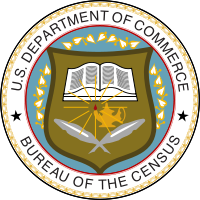 The “Great Recession” which officially started in 2007 and lasted throughout 2008 took a tremendous toll on the U.S. economy. Unemployment nearly doubled, stocks tumbled, the housing market collapsed, and millions of American families saw their net worth decrease.
The “Great Recession” which officially started in 2007 and lasted throughout 2008 took a tremendous toll on the U.S. economy. Unemployment nearly doubled, stocks tumbled, the housing market collapsed, and millions of American families saw their net worth decrease.
According to a new report from the U.S. Census Bureau, the financial crisis also had a significant impact on higher education enrollments as many families were hard pressed to pay for college. Despite the economic recovery that has occurred in recent years, enrollments in higher education have not recovered to earlier levels
For African Americans an average of 2,811,000 students were enrolled in college for the years 2008 to 2011. For the period from 2012 to 2015, the average enrollments in college were 2,752,000. For the 2008-to-2011 period, 24.6 percent of all African Americans ages 15 to 34 were enrolled in college. For the 2012-to-2015 period, 23.5 percent of African Americans in that age group were enrolled in college.
The largest declines were for Black women. There was an average of 80,000 fewer Black women enrolled in higher education in the 2012-to-2015 period than was the case in the 2008-to-2011 period. In contrast, the number of Black men enrolled in higher education actually increased slightly.













Jahnes love. I am grateful that I was able to enroll and matriculate in a Ph.D. program at a University in Switzerland in 2014. I am really happy to be studying Philosophy, Art and Critical Thought. This area of Study allows me to read and research subjects that I love and that I feel very passionate about. Still, I am having a hard time completing my work because I am homeless and I don’t have any funding. I used to get Student Loans but they were discontinued after my 4th year. I think that Black people should be able to access for financial resources to help them complete their Graduate Degrees in whatever fields that they choose. Blessed love.